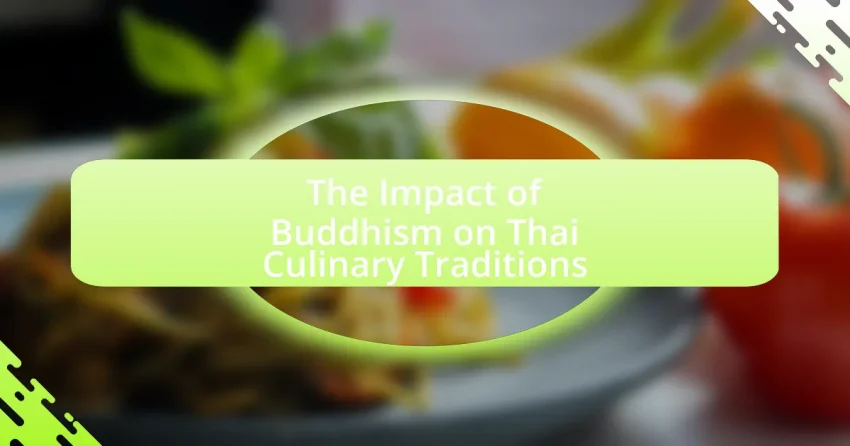Thai cooking classes serve as a vital medium for promoting cultural understanding by offering participants hands-on experiences with traditional culinary practices. These classes encompass instruction on the history, ingredients, and techniques unique to Thai cuisine, fostering appreciation for the cultural significance of various dishes. Participants engage with specific cultural elements, such as the importance of…
The Influence of Traditional Thai Music on Dining Experiences
The article examines the influence of traditional Thai music on dining experiences, highlighting its role in creating an immersive cultural atmosphere that enhances customer satisfaction. It discusses how the unique instrumentation and rhythmic patterns of traditional Thai music, such as the ranat and khim, contribute to a serene dining environment, positively affecting diners’ moods and…
The Influence of Thai Literature on Culinary Trends in Restaurants
The article examines the significant influence of Thai literature on culinary trends in restaurants, highlighting how traditional narratives and cultural elements inspire chefs to create dishes that reflect Thailand’s rich heritage. It discusses the role of classic texts in shaping culinary practices, emphasizing communal dining, seasonal ingredients, and the importance of local produce. Key themes…
The Influence of Thai Royal Cuisine on Modern Restaurant Offerings
Thai Royal Cuisine plays a significant role in shaping modern restaurant offerings by introducing refined cooking techniques, intricate flavors, and an emphasis on high-quality ingredients. This culinary tradition, which dates back to the Ayutthaya period, has evolved from a ceremonial dining practice to a more accessible culinary experience, influencing contemporary chefs to adopt its principles…
The Influence of Thai Cinema on Popular Restaurant Dishes
The article examines the influence of Thai cinema on popular restaurant dishes, highlighting how films like “Eat Pray Love” and “The Hangover Part II” showcase traditional Thai recipes, thereby increasing their demand in both local and international dining. It discusses the role of visual storytelling in enhancing food appreciation and consumer behavior towards Thai cuisine,…
The Impact of Social Media on the Popularity of Thai Dishes
The article examines the significant impact of social media on the popularity of Thai dishes, highlighting how platforms like Instagram and TikTok enhance visibility and consumer engagement through visually appealing content. It discusses the transformative role of social media in discovering Thai cuisine, the influence of food influencers, and the economic implications for Thai restaurants….
The Importance of Thai Hospitality in Restaurant Service
The main entity of the article is Thai hospitality in restaurant service. The article explores the significance of Thai hospitality, characterized by warmth, respect, and attentiveness, in enhancing customer satisfaction and loyalty within the restaurant industry. It defines Thai hospitality through cultural concepts such as “nam jai” and “sanuk,” highlighting how these principles manifest in…
The Impact of Buddhism on Thai Culinary Traditions
The article examines the profound influence of Buddhism on Thai culinary traditions, highlighting the promotion of vegetarianism and mindful eating practices rooted in Buddhist principles such as ahimsa, or non-violence. It discusses how Buddhist rituals, festivals, and the practice of almsgiving shape dietary customs and food preparation methods in Thailand, leading to a rich variety…
The Evolution of Thai Cuisine in the Global Restaurant Landscape
The article examines the evolution of Thai cuisine within the global restaurant landscape, highlighting its transformation from regional dishes to a widely celebrated culinary tradition. It traces the rise of Thai food’s popularity since the 1980s, driven by the establishment of Thai restaurants in major cities and the influence of food media. Key characteristics of…
How Thai Restaurants Utilize Local Ingredients to Honor Cultural Roots
Thai restaurants play a significant role in honoring cultural roots by incorporating local ingredients into their menus. This practice enhances the authenticity of traditional dishes while supporting local agriculture and reducing environmental impact. Key ingredients such as lemongrass, Thai basil, and various chilies are sourced from nearby farms, reflecting regional agricultural practices and seasonal availability….









